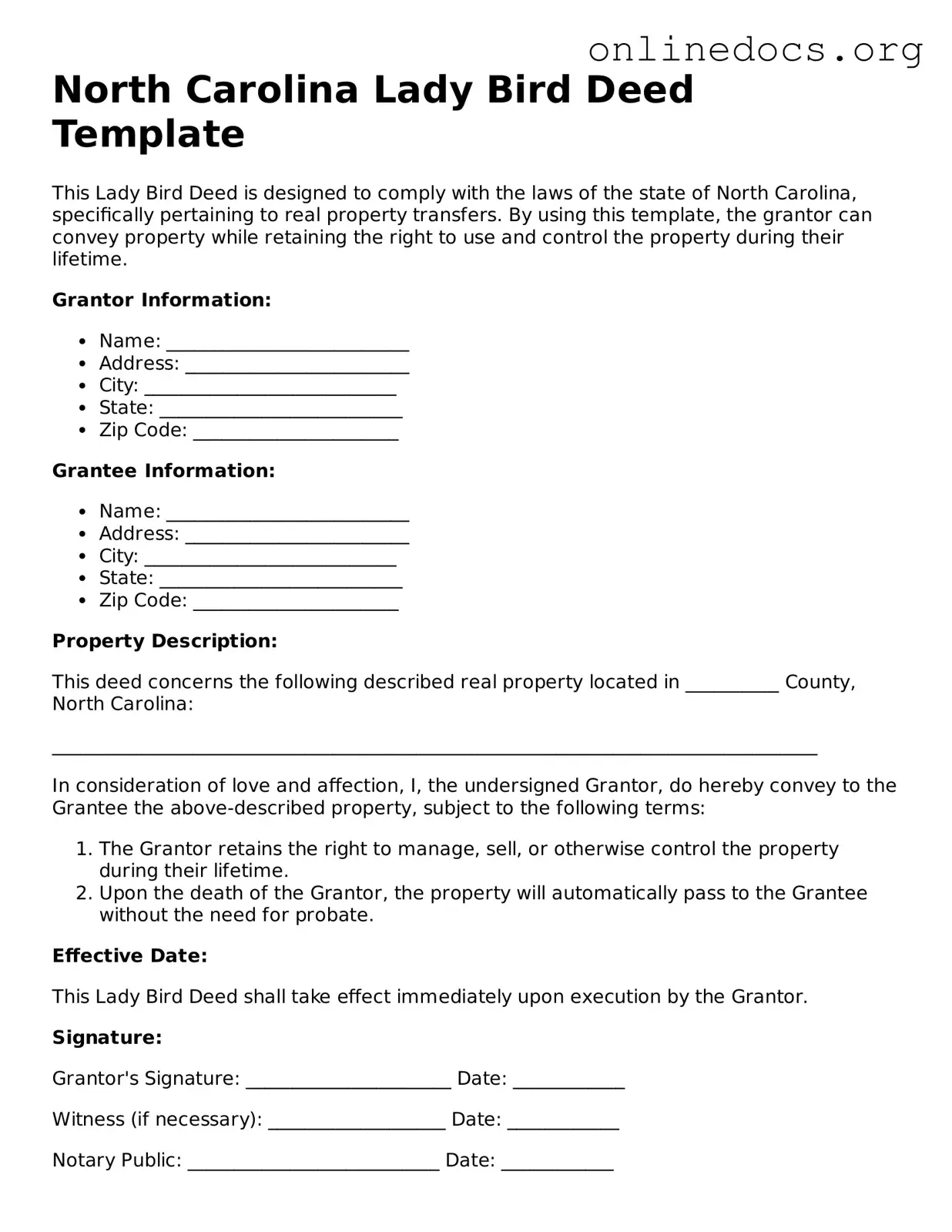Fillable Lady Bird Deed Form for North Carolina
The North Carolina Lady Bird Deed is a unique estate planning tool that allows property owners to transfer their real estate to beneficiaries while retaining control during their lifetime. This deed provides flexibility and can help avoid probate, ensuring a smoother transition of property upon the owner's passing. Understanding its benefits and requirements is essential for anyone considering this option in their estate planning strategy.
Access Editor Now
